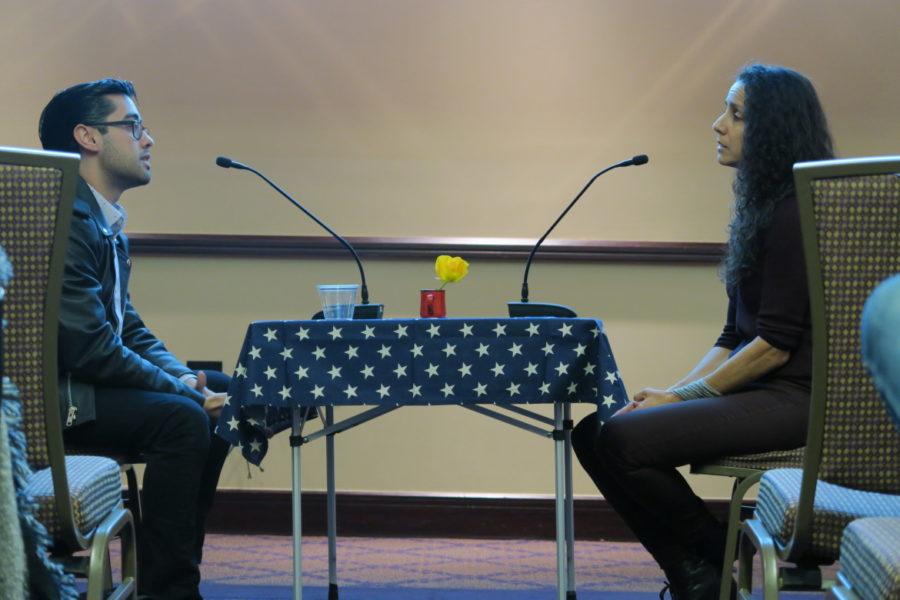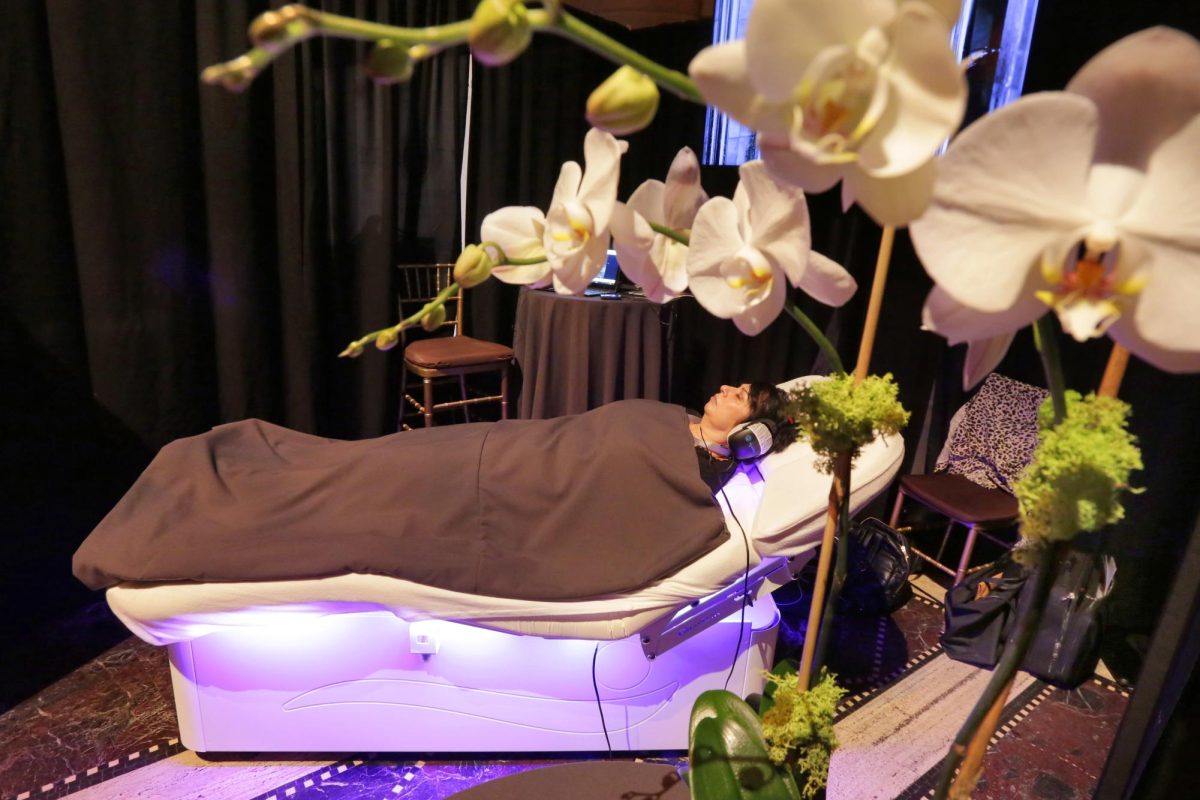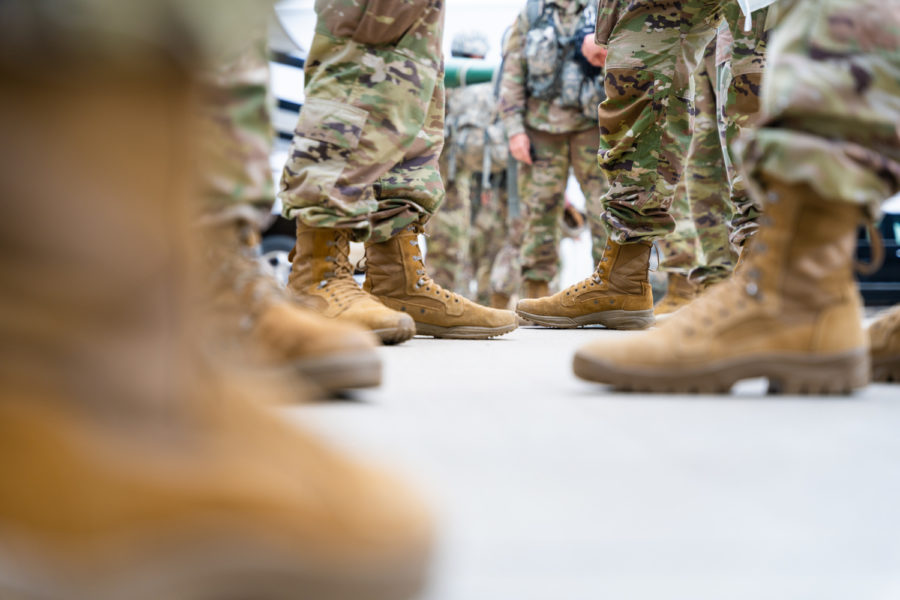The Student Government Association hosted an interactive event Wednesday night focused on creating a conversation about divisive political issues and bridging the partisan gap.
Bring it to the Table is a national movement created by Julie Winokur. The filmmaker travels to college campuses to hear students’ different perspectives on hot-button political issues.

The event included a screening of the documentary “Bring it to the Table,” and a round-table discussion between Winokur and two student volunteers.
The volunteers started the conversation by moving a flower pot on the table in the direction of their political affiliation. Then, they were asked a series of questions about their beliefs and why they held them.
One of the volunteer students was a self-proclaimed anarchist. Senior English major Will Stegall said that he is used to being the only anarchist in a room and having his beliefs put on the spot.
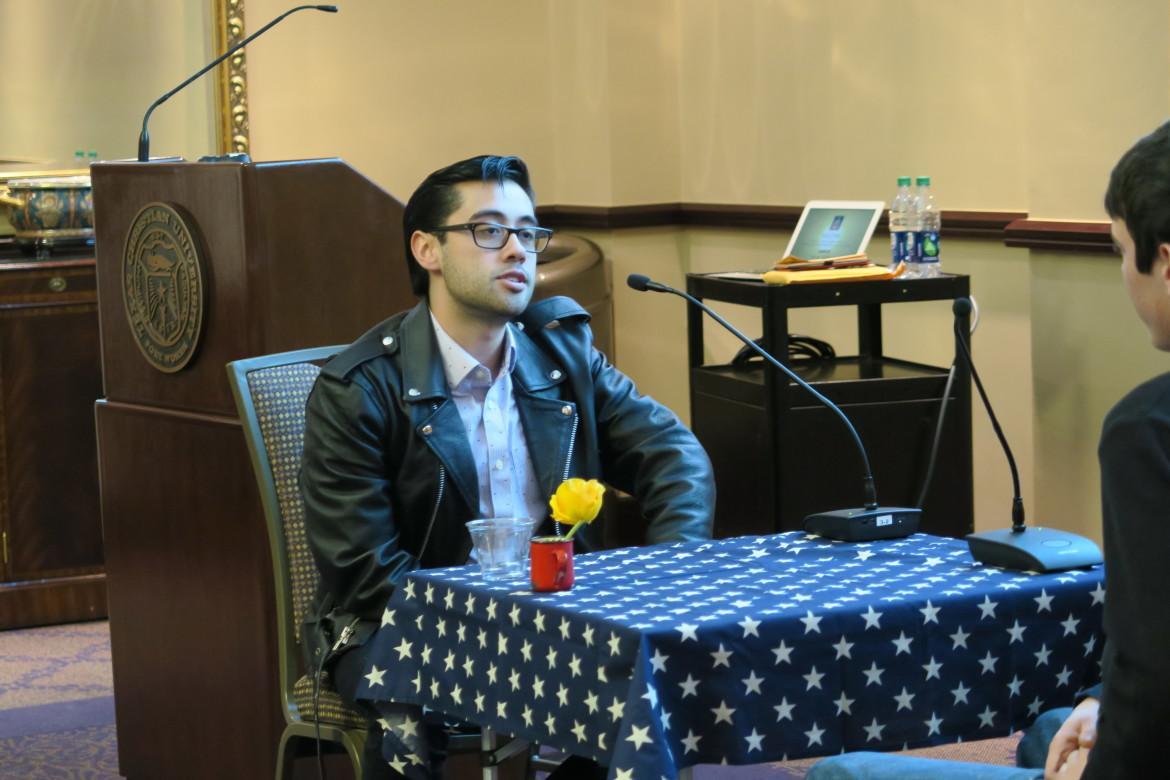
“[The documentary] really didn’t change my mind all that much, but I definitely did hear some new perspectives that I did not hear before,” Stegall said.
All students in attendance were asked to fill out a short survey on their phone before and after the event to compile data on students’ partisanship.
Students could rank themselves on a scale of liberal to conservative and Democrat to Republican, as well as characterize the opposite side as either “uncompromising” or “open-minded.”
These surveys have been taken by students across the nation, and the statistics are listed on Bring it to the Table’s website.
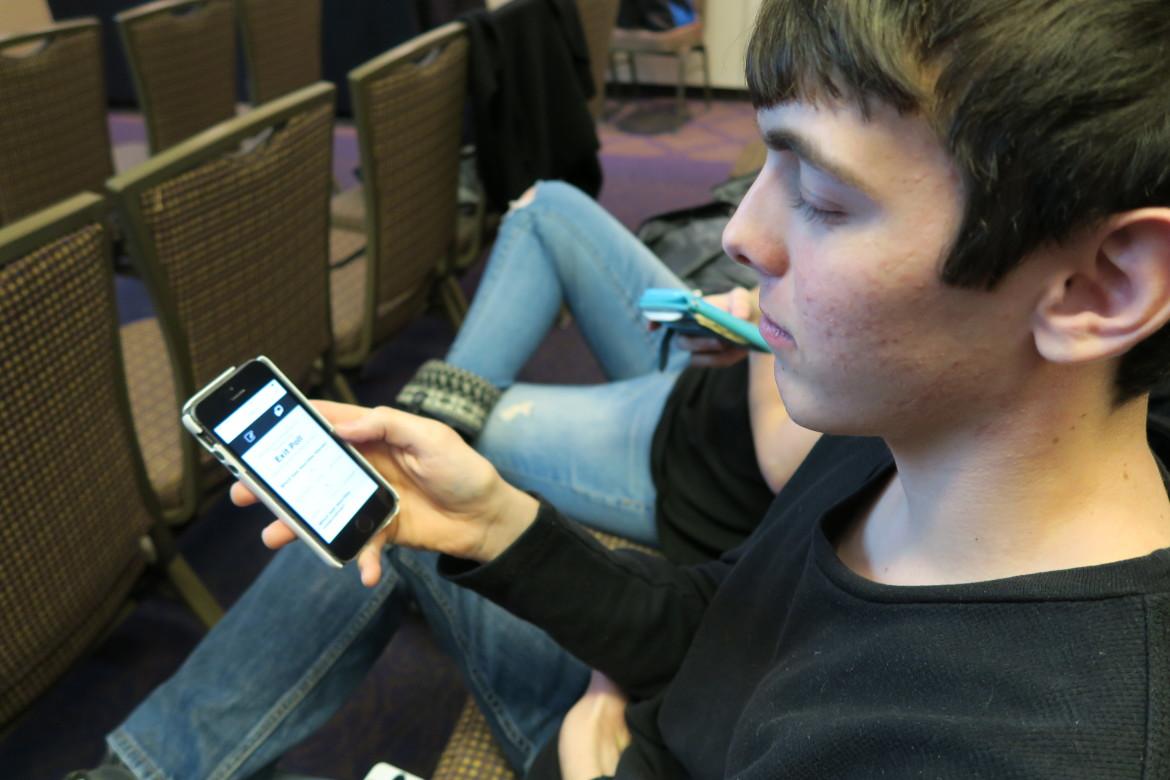
Winokur said the main goal of this event, and the documentary, was to get people engaged in listening and examining political issues from a fresh perspective undefined by partisanship.
“I want them to understand that their voices matter and that they have to do a better job at refocusing our attention on problem solving,” Winokur said. “I want them to feel encouraged about discussing substantive issues and inviting dialogue with people who have different views.”
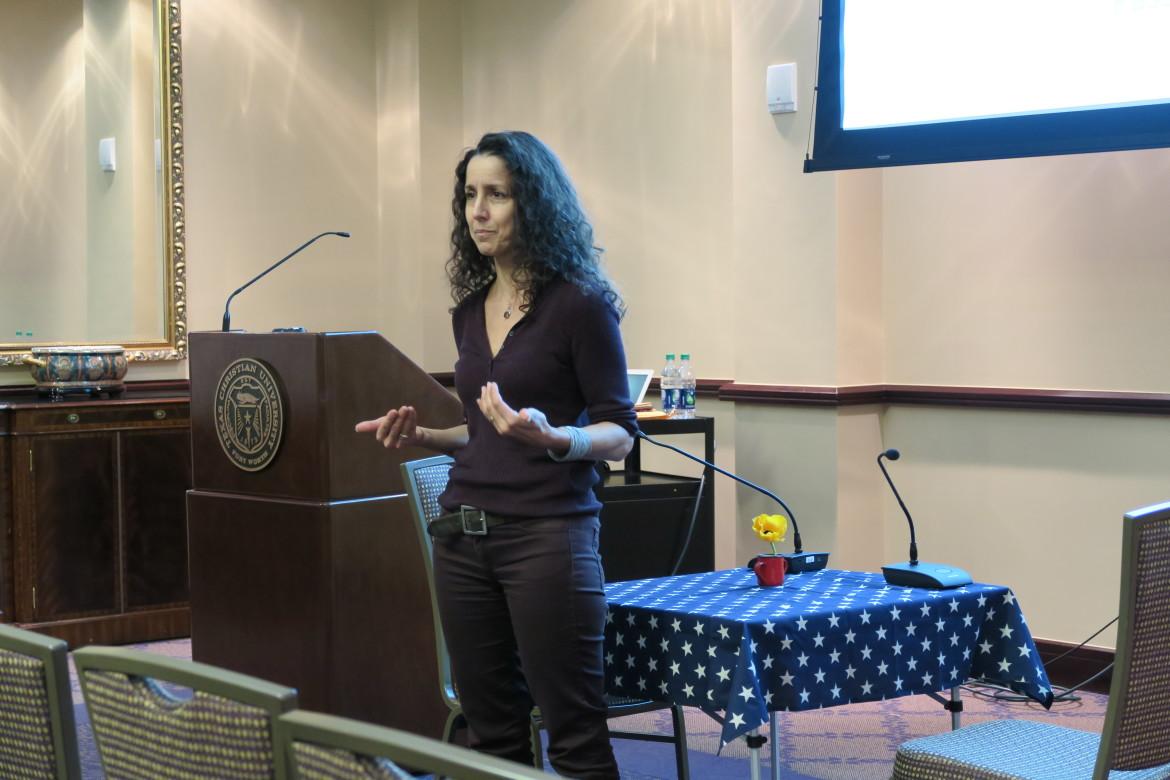
Senior theatre major Shannon Fulton said that Bring it to the Table gave her context to how people with opposing viewpoints discuss issues.
Fulton, who identifies as generally “more liberal,” said that while it was helpful to hear the other side, she also had an urge to “lecture” the opposing student.
“That’s like a personal thing that I have to overcome,” Fulton said. “There were a couple moments when I thought ‘You’re only looking at it through one lens.’ So, I don’t know, I’ll try.”

